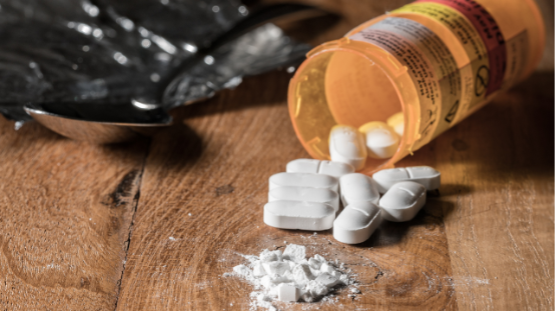FDA Approves Amneal’s Naloxone Hydrochloride Nasal Spray as an OTC Treatment for Opioid Overdose
April 26, 2024
Source: drugdu
 391
391
Don Tracy, Associate Editor
Company aims to provide affordable emergency treatment from overdoses of heroin, fentanyl, and prescription opioids.
 Amneal Pharmaceuticals announced that the FDA has approved its OTC Naloxone Hydrochloride (HCI) nasal spray for use in counteracting opioid overdoses. As a generic of Narcan, this nasal spray has also been shown to neutralize overdoses caused by heroin, fentanyl, and prescription opioids. With Naxolone officially available, the company stated that this action provides another affordable option to prevent overdoses, which causes more death in people under the age of 50 years than any other cause.1
Amneal Pharmaceuticals announced that the FDA has approved its OTC Naloxone Hydrochloride (HCI) nasal spray for use in counteracting opioid overdoses. As a generic of Narcan, this nasal spray has also been shown to neutralize overdoses caused by heroin, fentanyl, and prescription opioids. With Naxolone officially available, the company stated that this action provides another affordable option to prevent overdoses, which causes more death in people under the age of 50 years than any other cause.1
“With today’s launch, Amneal is proud to help address this public health emergency by providing naloxone nasal spray at an affordable price and without a prescription. Our business is deeply rooted in a commitment to helping others. By enhancing access to naloxone nasal spray, we hope to get this affordable emergency treatment into the hands of even more people who could potentially save countless families and communities from further heartache and loss,” said Chirag and Chintu Patel, co-CEOs, in a press release.
Last year, the FDA approved an OTC nasal spray version of Narcan as the first naxalone product to be obtainable without a prescription. It was previously given an approval with a prescription back in 2015. Additionally, the FDA announced in 2022 that through an assessment, certain naloxone products had the potential to provide safe and effective use when given as an OTC treatment.2
“Naloxone is a critical tool in addressing opioid overdoses and today’s approval underscores the extensive efforts the agency has undertaken to combat the overdose crisis,” said Patrizia Cavazzoni, MD, director, FDA’s center for drug evaluation and research, in a press release. “The FDA is working with our federal partners to help ensure continued access to all forms of naloxone during the transition of this product from prescription status to nonprescription/OTC status. Further, we will work with any sponsor seeking to market a nonprescription naloxone product, including through an Rx to OTC switch, and encourage manufacturers to contact the agency as early as possible to initiate discussions.”
According to the Centers for Disease Control and Prevention(CDC), an estimated 280,000 people died in the United States from prescription opioid overdoses between 1999 and 2021. Additionally, deaths in 2021 were five times higher than 1999. Additional statistics include:
Eleven percent of opioid deaths in the United States in 2021 involved some form of heroin.
Synthetic opioids accounted for approximately 88% of all opioid-related deaths in 2021.
Between June 2016 and June 2017, opioid-related deaths examined in 10 states found that more than 20% were from fentanyl.3
“Since the 1990s, when the amount of opioids prescribed to patients began to grow, the number of overdoses and deaths from prescription opioids has also increased,” reports the CDC. “Even as the amount of opioids prescribed and sold for pain has increased, the amount of pain that Americans report has not similarly changed.”
Read more on
- Phase III Clinical Trial of Recombinant Staphylococcus Aureus Vaccine Progressing Normality January 21, 2026
- Its drug marketing application for injectable iza-bren has been accepted January 21, 2026
- Kain Technology withdrew a drug registration application, resulting in a profit reduction of 111 million yuan in 2025 January 21, 2026
- Received Notice of Approval for Drug Clinical Trial January 21, 2026
- Breaking news! AstraZeneca to be delisted from Nasdaq. January 21, 2026
your submission has already been received.
OK
Subscribe
Please enter a valid Email address!
Submit
The most relevant industry news & insight will be sent to you every two weeks.



